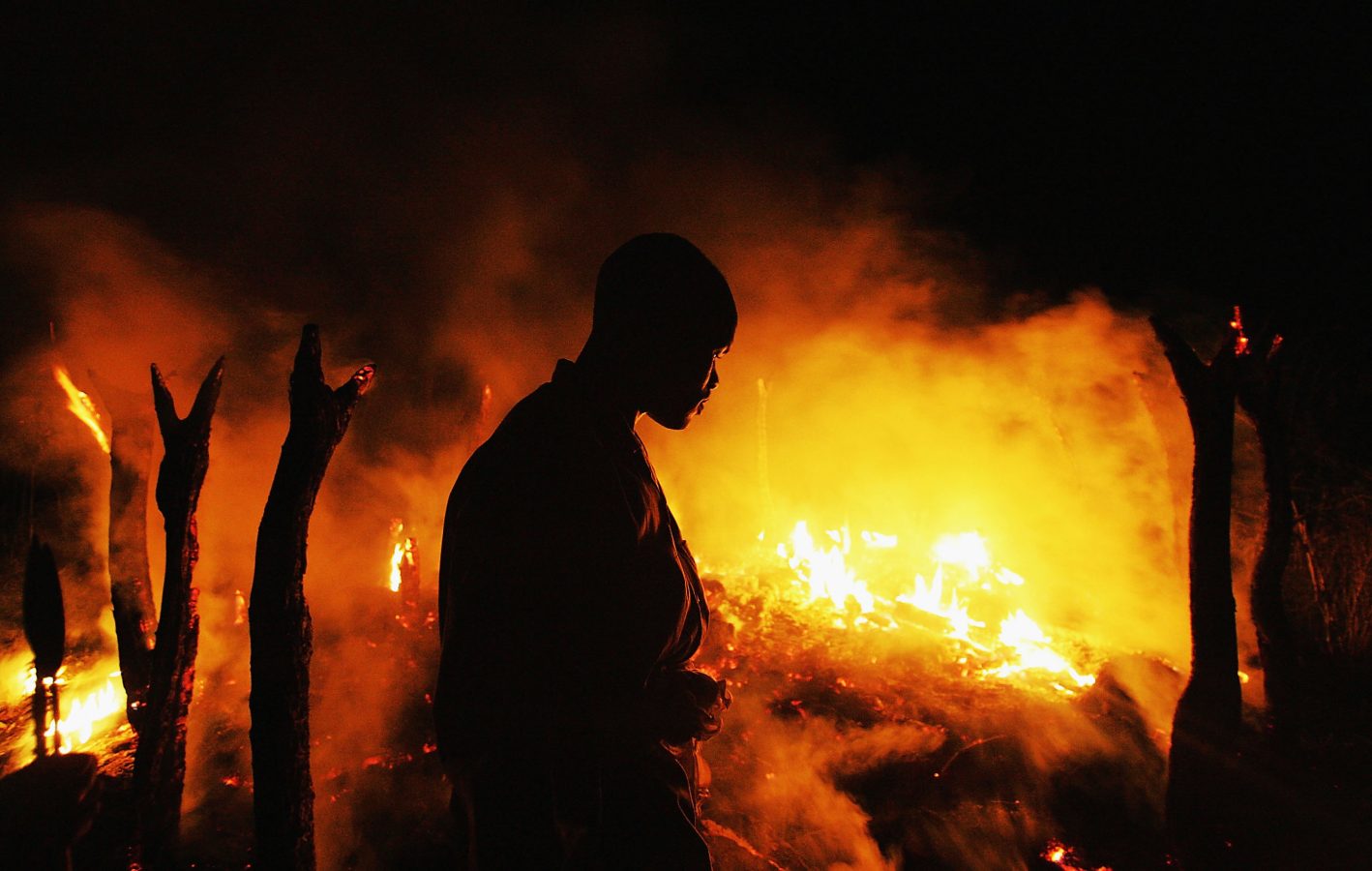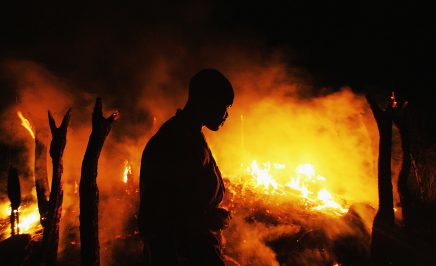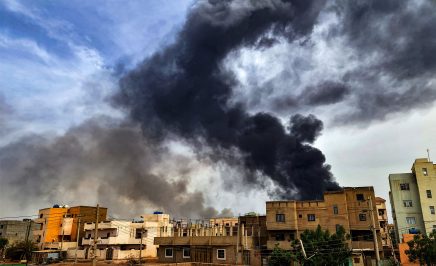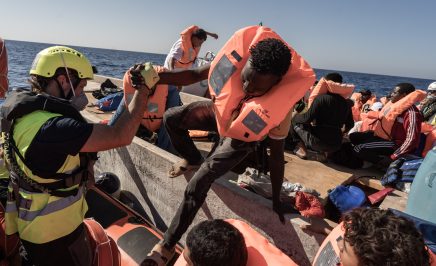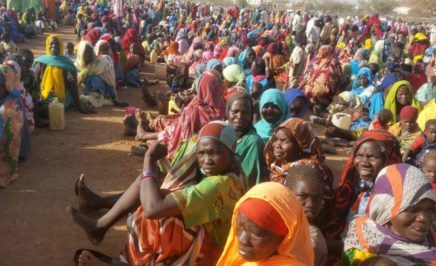Atikah Mekki, a Sudanese-Australian student of politics and law, reflects on the six-month anniversary of the Sudan conflict.
Sunday 15 October 2023 was the six-month anniversary of the outbreak of the war in Sudan, Northeast Africa. I still remember the night my family and I heard the news at our home in Canberra. It was the night of Saturday April 15, 2023, in the middle of the holy Islamic month of Ramadan, and my family and I had just broken our fast.
We received news of the very beginning of the fighting between the Sudanese Armed Forces (SAF) and the paramilitary Rapid Support Forces (RSF) in Sudan. These are the rival factions of the military government of Sudan, and their fighting was concentrated around the capital city of Khartoum and the Darfur region.
Six months later, the status of the war is ongoing. A refugee crisis and many human rights violations have emerged because of the conflict. At least 5,000 people have been killed, over 12,000 people have been injured and over 5.7 million people have been forcibly displaced.
Sudanese civilians, like civilians right across this earth who are forced to live through conflict, want their safety, their freedom, and a just, peaceful, and democratic government.
However, the international community has failed to hold accountable and bring to justice those responsible for international crimes from decades ago. This lack of accountability has sent a dangerous message to all parties that they can continue to commit crimes with impunity. What we now are seeing again is in violation of international human rights and humanitarian laws.
Amnesty International has documented mass civilian casualties and human rights violations, some of which amount to war crimes, for which individual soldiers and commanders can be held criminally responsible. The United Nations Human Rights Council decision in October to establish an international, independent fact-finding mission for Sudan is a small step forward.
As a Sudanese Australian student of the diaspora, the past six months have been emotionally and psychologically challenging. Although I have not been directly, physically subjected to the conflict in Sudan, I have felt the effects. I wake up each morning and hold my breath while I read the news from my trusted Sudanese sources, hoping I won’t read something that will trigger tears. Each time my parents make phone calls to the large number of family relatives we have living in Sudan, I again hold my breath. I always hope I won’t hear some devastating news conveying death or injury.
Although I have not been directly, physically subjected to the conflict in Sudan, I have felt the effects. I wake up each morning and hold my breath while I read the news from my trusted Sudanese sources, hoping I won’t read something that will trigger tears. Each time my parents make phone calls to the large number of family relatives we have living in Sudan, I again hold my breath. I always hope I won’t hear some devastating news conveying death or injury.
All this isn’t to say that I haven’t cried, or been worried for my family overseas, or that my family hasn’t been directly impacted. Most of my family in Sudan was forcibly displaced when the peak of the war caused them to take their children and flee to neighbouring countries such as Egypt. This was an extremely arduous process for them, especially for the elderly members of my family. Travelling by bus through the vast land of Sudan to a foreign country like Egypt, is not only physically taxing, but psychologically taxing as well.
Imagine leaving your home, everything you have ever known and your life that you have built, abandoning it at short notice and with no certainty on whether you’ll return. Witnessing my family going through this was extremely difficult for me, and this aspect of the refugee experience is under-documented.
Imagine leaving your home, everything you have ever known and your life that you have built, abandoning it at short notice and with no certainty on whether you’ll return. Witnessing my family going through this was extremely difficult for me, and this aspect of the refugee experience is under-documented.
As I am in the Sudanese diaspora, I have tried to do what I can since April 2023 in terms of raising awareness, expressing my support, and donating. I believe this is the least I can do and that it is incumbent upon me.
One of the positive aspects of all of this is that it has allowed me to reconnect with the Sudanese community in Canberra. In April I attended a small demonstration at the Sudanese Embassy in Canberra, where we peacefully protested for an end to the war. It was a privilege to be interviewed by ABC News Canberra on my thoughts on the day.
I also spoke at an Amnesty International Webinar in May, focusing on human rights in the Sudan war. This was a great opportunity, and I was pleased with the number of attendees, and I appreciated those who expressed their condolences. In May I also attended a protest outside Parliament House, calling for the Australian government to intervene in the Sudanese conflict. I am grateful for these opportunities as they have benefitted me as someone who couldn’t assist on the ground in Sudan.
One of the challenges of being in the diaspora is knowing that your people desperately require aid in the face of devastating violence, and not being able to provide this as one person with not much power or influence. It’s terrifying watching footage of what’s unfolding in Sudan, hoping you don’t see someone you know; it’s outraging to see the Western world turn a blind eye to those suffering in African countries, yet again; it’s frustrating knowing that I can’t end the war. But the least I can do is raise my voice about it. For the sake of future Sudanese generations, this is imperative.
I’ve studied international law at university and realised how profoundly ineffective it can be in influencing the behaviour of politicians or holding powerful people to account. Why are Western countries normalising ties with countries that carry out war crimes? Why is it acceptable to indiscriminately bomb civilian populations in direct contravention of international law?
Sudanese protestors, including women and children, have been unlawfully detained and mistreated in Sudan. Some have been forcibly disappeared. Hundreds of Sudanese civilians have been killed and injured by militia groups in the West Darfur region. Where is the public outcry and condemnation? Why is there only silence? One thing I know is that we cannot wait for the answers to these questions.
Atikah Mekki is a Sudanese Australian diaspora student residing in Canberra, studying Politics, International Relations and Law at the University of Canberra.
